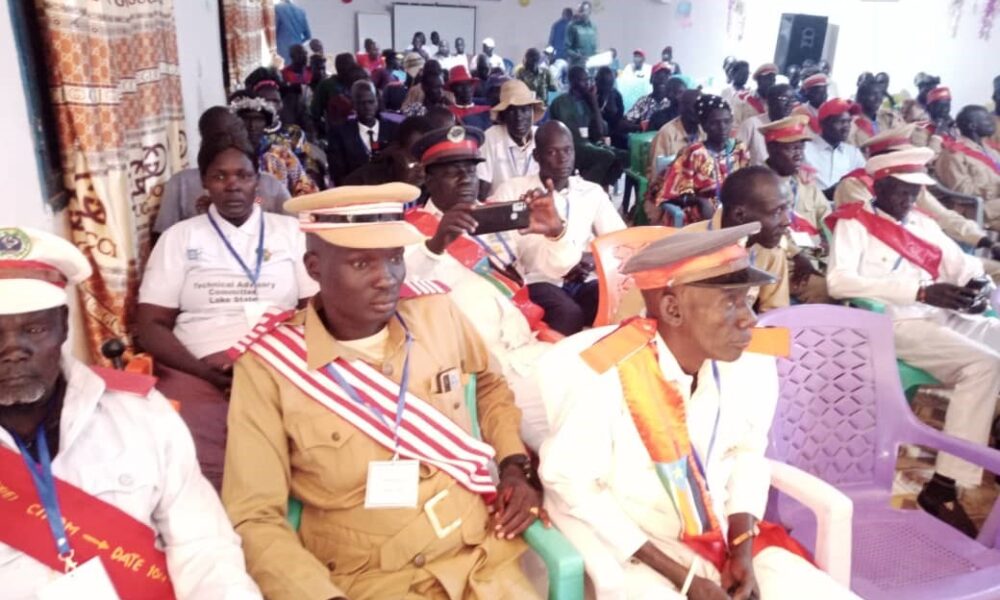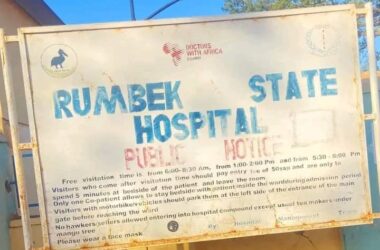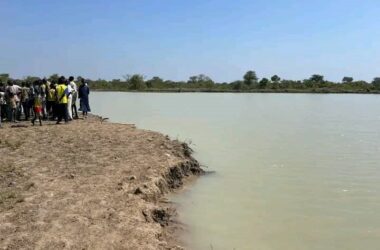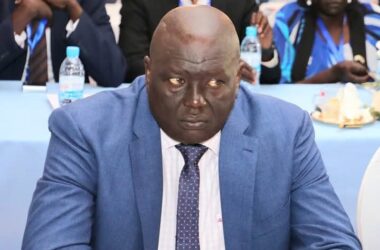By Yang Ater Yang
Four-day interstate dialogue between the Lauc-jang community of Warrap State and the Pakam community of Rumbek North County in Lakes State began on Monday.
Organized by Peace Canal, the dialogue aims to address ongoing conflicts and issues affecting the bordering counties of Rumbek North, Cueibet, and Rumbek Central in Lakes State, as well as Tonj East and Tonj South in Warrap State.
Approximately 130 participants, including chiefs, youth, women, and government officials, are taking part.
Lakes State Governor Rin Tueny Mabor urged participants from both states to reject violence and protect vulnerable community members.
“The government that speaks in Dinka is your own government. We brought it through power for a better life, yet we now face death, theft, and violence,” he stated.
He highlighted land disputes as a major source of conflict between the Luacjang and Pakam communities.
“There are issues of cattle theft and forced cattle robbery. Historically, the muony-jang community obtained cattle through farming and marriage, not through theft,” he explained. “It is not part of Dinka culture to harm the elderly, women, or children.”
Christopher Muchiru Murenga, head of the UNMISS field office in Rumbek, emphasized the need for dialogue to address community challenges.
“It is crucial that common resources, particularly cattle, are managed in a way that benefits everyone,” he noted. Murenga expressed optimism that this dialogue would foster lasting peace among the communities.
Warrap State Minister of Peacebuilding Mading Mawien Adhiik stated that people-to-people dialogue is essential for achieving peace.
“You cannot have peace without communication. You are here to present your issues and find resolutions,” he said. Adhiik encouraged participants to envision 2025 as a year of peace for South Sudan.
Salva Akot, Deputy Peace Program Manager, detailed the purpose of the dialogue.
“We are here in Rumbek to organize a cross-border dialogue between the Pakam and Luacjang communities.
This four-day event is a continuation of earlier discussions held in May and June 2024 to identify key conflicts and propose solutions,” he explained.
The dialogue, attended by representatives from both states, aims to address outstanding issues and find sustainable solutions to the long-standing conflicts.
Adhiik noted that previous dialogues have laid the groundwork for this conference, which seeks to finalize grievances between the communities.
The minister highlighted that challenges such as cattle raiding and water scarcity have fueled clashes in the past.
“We need to listen to the communities and emphasize how they can coexist peacefully,” he asserted.
He condemned the violence and lawlessness that have emerged since the civil wars, urging a return to the harmonious relationships of the past.




